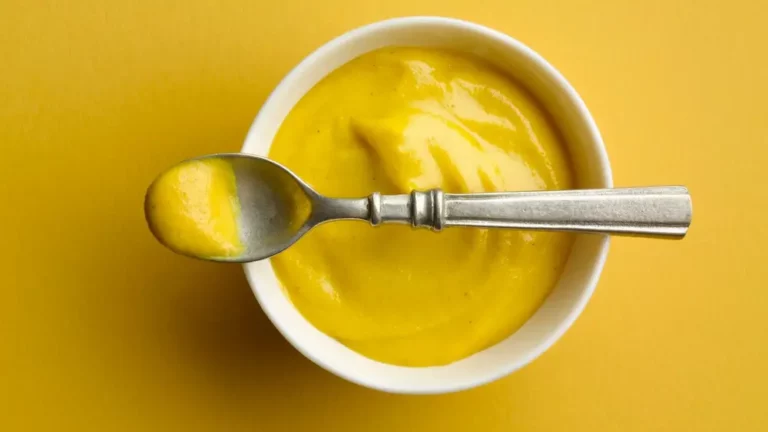Does Vitamin Water Boost Electrolytes? Unpacking Myths & Facts
When it comes to hydration, we often hear about the benefits of electrolytes. That’s where vitamin water comes into play, a popular choice for many seeking a quick boost. But does vitamin water have electrolytes? It’s a question I’ve found myself asking, especially with the myriad of beverage options out there.
Vitamin water, a brand owned by Coca-Cola, is fortified with electrolytes, vitamins, and minerals, making it comparable to sports drinks like Gatorade. However, it’s crucial to dive deeper than the label. While it boasts of electrolytes and added nutrients, it’s also packed with added sugars, which raises questions about its health benefits. Let’s peel back the layers and take a closer look at what’s really in your bottle of vitamin water.
What Is Vitamin Water?
As someone deeply interested in the health and wellness space, I’ve come across a variety of products aimed at enhancing our hydration process. One such product is vitamin water. This beverage has carved out a significant place in the fitness and health industry, often lauded for its added vitamins and appealing flavors. But what exactly is vitamin water, and how does it stack up nutritionally?
Key Ingredients and Nutritional Highlights
Vitamin water is not just another flavored drink; it’s formulated to offer more than just hydration. The appeal of vitamin water lies in its concoction of water-soluble vitamins and minerals, designed to replenish what we lose during the day, especially after intense physical activities. Brands typically infuse a mix of vitamins A, B, and C, alongside minerals like zinc and selenium, into the water, making each sip potentially more beneficial than plain water.
However, it’s vital to turn our attention to the nutritional specifics that define vitamin water. A typical 20-ounce bottle boasts about 120 calories and, notably, around 31 grams of added sugar. This figure is crucial because it hovers just under the American Heart Association’s recommended maximum daily sugar intake for men, which is 38 grams. This realization brings to light an important consideration about balancing the intake of vitamin water, especially due to its sugar content.
Moreover, certain varieties of vitamin water under the “Zero” line have made attempts to reduce the sugar content by substituting traditional sweeteners with alternatives like monk fruit and stevia. These options might offer a slightly better nutritional profile for those conscious about their calorie and sugar intake, and it is not quite the same as other electrolyte drinks.
It’s also worth mentioning that vitamin water is enriched with electrolytes, paralleling some sports drinks in functionality. These electrolytes are crucial for hydration and maintaining the body’s proper chemical balance, especially after sweating out during exercises. Yet, the healthfulness of vitamin water can sometimes be overshadowed by its sugar content, thus necessitating a more discerning look at our consumption choices.
In examining vitamin water, we see a product that straddles the line between a nutritious hydration option and a sugary beverage. This duality challenges us to weigh the benefits of added vitamins and electrolytes against the potential drawbacks of their sugar content. As we delve deeper into understanding what makes a hydration choice truly beneficial, the composition of vitamin water certainly gives us plenty to contemplate.
The Role of Electrolytes in Hydration
Understanding Electrolytes and Their Importance
Electrolytes are minerals in your body that have an electric charge. They are in your blood, urine, tissues, and other body fluids. Electrolytes are crucial because they help balance the amount of water in your body and move nutrients into your cells and wastes out of them. They also help ensure your nerves, muscles, heart, and brain work the way they should.
Some of the key electrolytes include sodium, potassium, calcium, bicarbonate, magnesium, chloride, and phosphate. Without the right balance of these electrolytes, your body can’t perform at its best. For instance, a lack of potassium can lead to fatigue, weakness, and muscle cramps. When you’re dehydrated, it’s not just about missing water; you’re also skimping on these necessary electrolytes, which can exacerbate health problems.
How Electrolytes Affect Physical Performance and Health
For athletes or anyone engaging in physical activity, understanding the role of electrolytes can be particularly beneficial. During exercise, the body sweats, releasing water and electrolytes. This is why it’s essential to replenish fluids during and after intense physical activity. Electrolyte imbalances can lead to dehydration, muscle cramps, fatigue, and more severe health issues like heart irregularities and neurological problems.
Ensuring an adequate intake of electrolytes directly impacts physical performance. Optimal hydration, powered by a healthy electrolyte balance, enables longer, more effective workouts, quicker recovery times, and overall better health. Moreover, maintaining this balance supports essential bodily functions outside of physical activity, including regulating heartbeat, allowing muscles to contract properly, and ensuring your nervous system functions efficiently.
Incorporating electrolyte-rich foods and beverages into your diet or taking supplements is an effective way to maintain this balance. However, it’s crucial to approach electrolyte intake in moderation, as too much of certain minerals can be just as detrimental as too little.
Analyzing the Electrolyte Content in Vitamin Water
When exploring the topic of hydration and sports drinks, one question that often arises is whether beverages like Vitamin Water contain enough electrolytes to be genuinely beneficial. Let’s dive into the electrolyte content of Vitamin Water to understand how it stands in comparison to other hydration options.
Types of Electrolytes Found in Vitamin Water
Vitamin Water does indeed include electrolytes, but what types are we talking about? Primarily, Vitamin Water is formulated with a blend of three key electrolytes: calcium, magnesium, and potassium. These electrolytes play crucial roles in the body, from supporting nerve function to regulating muscle contractions. Calcium is paramount for bone health and muscle function. Magnesium supports over 300 biochemical reactions in the body, including muscle and nerve function, as well as energy production. Potassium, on the other hand, is essential for maintaining normal heart rhythm, muscle contractions, and nerve impulses.
Vitamin Water Varieties and Their Electrolyte Levels
Different flavors and varieties of Vitamin Water might offer varying levels of electrolytes. Generally, the brand advocates for a “tailored” approach to nutrition, meaning each variety aims to serve a different purpose—whether it’s energy, focus, or hydration. However, when it comes to electrolyte content, not all Vitamin Waters are created equal.
The electrolyte levels are notably lower compared to traditional sports drinks, which are specifically designed for rapid replenishment post-workout. For instance, sports drinks typically contain higher concentrations of sodium and potassium to quickly restore what’s lost through sweat. Here’s a brief overview of the electrolyte content found in some Vitamin Water varieties:
| Vitamin Water Variety | Calcium (mg) | Magnesium (mg) | Potassium (mg) |
|---|---|---|---|
| Focus | 10 | 10 | 75 |
| Power-C | 10 | 10 | 75 |
| Essential | 10 | 10 | 75 |
| XXX | 10 | 10 | 75 |
It’s important to mention that each bottle also contains about 31 grams of sugar, which is quite high and can potentially offset the benefits of the electrolytes by promoting dehydration through increased urine output. The Vitaminwater’s Zero line attempts to mitigate this by substituting added sugars with sweeteners like monk fruit and stevia, potentially making it a better choice for those looking to avoid sugar while still seeking hydration and electrolyte replenishment. Also, keep in mind that some Vitamin Water can include caffeine, which should be avoided.
While Vitamin Water does include key electrolytes, making it a reasonable choice for casual hydration, those engaging in intense physical activities or seeking significant electrolyte replenishment might need to look towards more specialized sports drinks or electrolyte-rich foods for optimal benefits. Also, it is a much better choice for fitness enthusiasts, than Trader Joe rose water, for example.
Vitamin Water vs. Traditional Sports Drinks
In the realm of hydration, particularly when it comes to replenishing after a strenuous workout or during intense physical activities, the choice often boils down to Vitamin Water or traditional sports drinks. Both options offer unique benefits, but how do they stack up against each other in terms of electrolyte content? Let’s dive into the specifics.
Electrolyte Comparison
Electrolytes, specifically calcium, magnesium, potassium, and sodium, play a crucial role in maintaining fluid balance, nerve function, and muscle contractions. A closer look reveals that sports drinks typically offer a higher concentration of these vital minerals designed to quickly replenish what’s lost through sweat. For example, consider the following comparison:
| Electrolyte | Vitamin Water (mg per 20 oz) | Traditional Sports Drink (mg per 20 oz) |
|---|---|---|
| Sodium | 0 – 30 | 50 – 200 |
| Potassium | 30 – 70 | 30 – 90 |
| Magnesium | <5 | 0 – 7 |
| Calcium | <5 | 0 – 2 |
While Vitamin Water does contain electrolytes, the levels are significantly lower than what’s typically found in traditional sports drinks. This difference underscores the primary intent behind each beverage. Vitamin Water focuses more on general hydration and vitamin supplementation, whereas traditional sports drinks are formulated specifically for rapid electrolyte replenishment during and after high-intensity physical activity.
When to Choose Vitamin Water Over Sports Drinks
Deciding between Vitamin Water and traditional sports drinks depends largely on your specific needs and circumstances. Here are a few scenarios where Vitamin Water might be the preferable option:
- Lower-intensity activities: For less strenuous exercises or regular daily activities that don’t induce heavy sweating, Vitamin Water can offer adequate hydration without the extra electrolytes and calories found in sports drinks.
- General hydration needs: If you’re simply looking to stay hydrated throughout the day with a bit of added flavor and nutrients, Vitamin Water can be a more appealing choice due to its array of vitamins and minerals.
- Dietary concerns: For those watching their sugar intake, Vitaminwater’s Zero line offers a no-sugar alternative sweetened with monk fruit and stevia. This can be particularly beneficial for maintaining hydration without contributing to daily sugar consumption, a key consideration given the links between high sugar intake and various health issues.
It’s worth noting that regardless of your choice, moderation is key. The high sugar content in both Vitamin Water and many traditional sports drinks can contribute to unwanted calories if consumed excessively. Understanding your body’s needs and balancing them with your overall diet and lifestyle will guide you toward the best hydration strategy for your individual health and fitness goals.
The Benefits of Hydrating with Vitamin Water
When considering hydration options, it’s hard to miss the colorful aisles filled with Vitamin Water. The question, “Can vitamin water meet your hydration needs?” frequently pops up in my discussions about maintaining optimal hydration levels. If you’re pondering the same, let’s dive into the details.
Can Vitamin Water Meet Your Hydration Needs?
At its core, Vitamin Water is designed to do more than just quench your thirst. Each bottle is infused with a blend of vitamins and minerals, including vitamins A, B, and C, along with essential minerals like zinc and selenium. This concoction not only helps in rehydrating after a strenuous workout but also provides a modest nutritional bonus compared to plain water.
But it’s not just about what’s added; it’s also about what’s potentially subtracted from your health. A 20-ounce bottle contains roughly 31 grams of sugar, a figure that nudges close to the American Heart Association’s recommended maximum sugar intake of 38 grams per day for men. On the flip side, the Vitaminwater Zero line offers a sugar-free alternative, sweetened with monk fruit and stevia, aiming to cut back on sugar and calories.
So, can it meet your hydration needs? Yes, with a caveat. If you’re seeking an occasional boost in vitamins and minerals along with hydration, Vitamin Water can be a handy choice. However, it’s essential to remember that pure water should remain your primary source of hydration.
How to Choose the Best Hydration Option
Choosing the right hydration option can be a daunting task with numerous choices available. Given the variety, from water to sports drinks like Vitamin Water, understanding how to select the best option for your needs is crucial. Below, I’ll delve into how to assess your hydration needs based on activity level and the importance of reading labels to understand exactly what you’re drinking.
Assessing Your Hydration Needs Based on Activity Level
When it comes to hydration, one size doesn’t fit all. Your body’s needs significantly vary depending on your level of activity. For low-intensity activities or your everyday hydration, pure water is unbeatable. It’s the most natural way to hydrate without any added sugars or calories.
However, if you’re engaged in strenuous activities or long-duration exercises, your body loses not just water but also electrolytes through sweat. This is where drinks that contain electrolytes, like Vitamin Water, can come into play. They help replenish the electrolytes lost and provide a boost in hydration. Electrolytes are crucial for muscle function and hydration balance, and failing to replace them can lead to dehydration.
Reading Labels: Understanding What You’re Drinking
When selecting a hydration option, reading labels is essential. Not all drinks are created equal, and what’s marketed as a “healthy” option could be loaded with added sugars and calories. For instance, while Vitamin Water contains electrolytes and vitamins, it’s also high in added sugars. A 20-ounce bottle can contain around 31 grams of sugar, close to the American Heart Association’s recommended maximum intake of 38 grams per day for men.
Check for calories, sugar content, and the presence of artificial sweeteners if you’re opting for a sugar-free version like Vitaminwater’s Zero line. While these versions cut back on sugar and calories by using sweeteners like monk fruit and stevia, it’s still important to consume them in moderation.
Also, look for the specific types and amounts of electrolytes present. Potassium, magnesium, and sodium are key electrolytes that you should look for in a sports drink. Their presence in adequate amounts can help ensure that the beverage will effectively aid in your hydration and recovery post-activity
Conclusion
So, while Vitamin Water does contain electrolytes, it’s clear that it shouldn’t be your go-to for hydration or electrolyte replenishment, especially due to its sugar content. I’ve learned that staying hydrated and maintaining electrolyte balance is best achieved through water and a diet rich in natural sources of electrolytes. For those intense workout days, choosing electrolyte supplements or sports drinks with lower sugar content is key. Remember, it’s all about balance and making informed choices for your health.
FAQ – Frequently Asked Questions
Is vitamin water better than Gatorade?
Vitaminwater, with its lower sugar content and absence of artificial colors and flavors, is a preferable option over Gatorade for the average person. However, choosing between them should also consider the specific hydration and electrolyte needs based on physical activity levels.
How many vitamin waters can you drink a day?
Although Vitamin Water is fortified with vitamins, drinking 1-2 bottles per day is suggested on the label. This amount complements a balanced diet but doesn’t fully meet daily vitamin or hydration needs alone.
Is it OK to drink electrolytes everyday?
Regular consumption of electrolyte drinks without a corresponding electrolyte loss, typically from sweating due to intense physical activity, can lead to electrolyte imbalances. Therefore, it is not advisable to drink them daily in large amounts without necessity.







